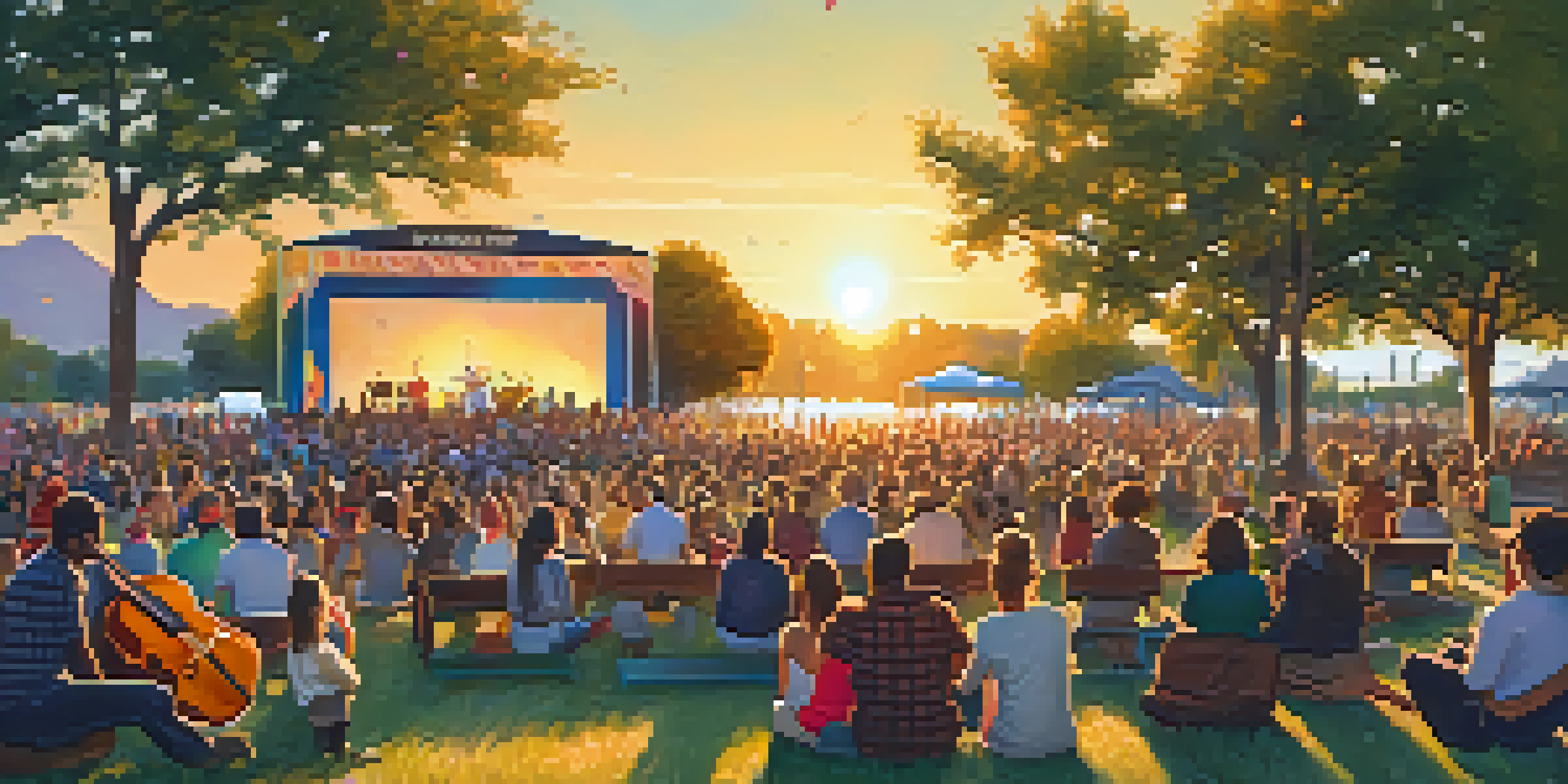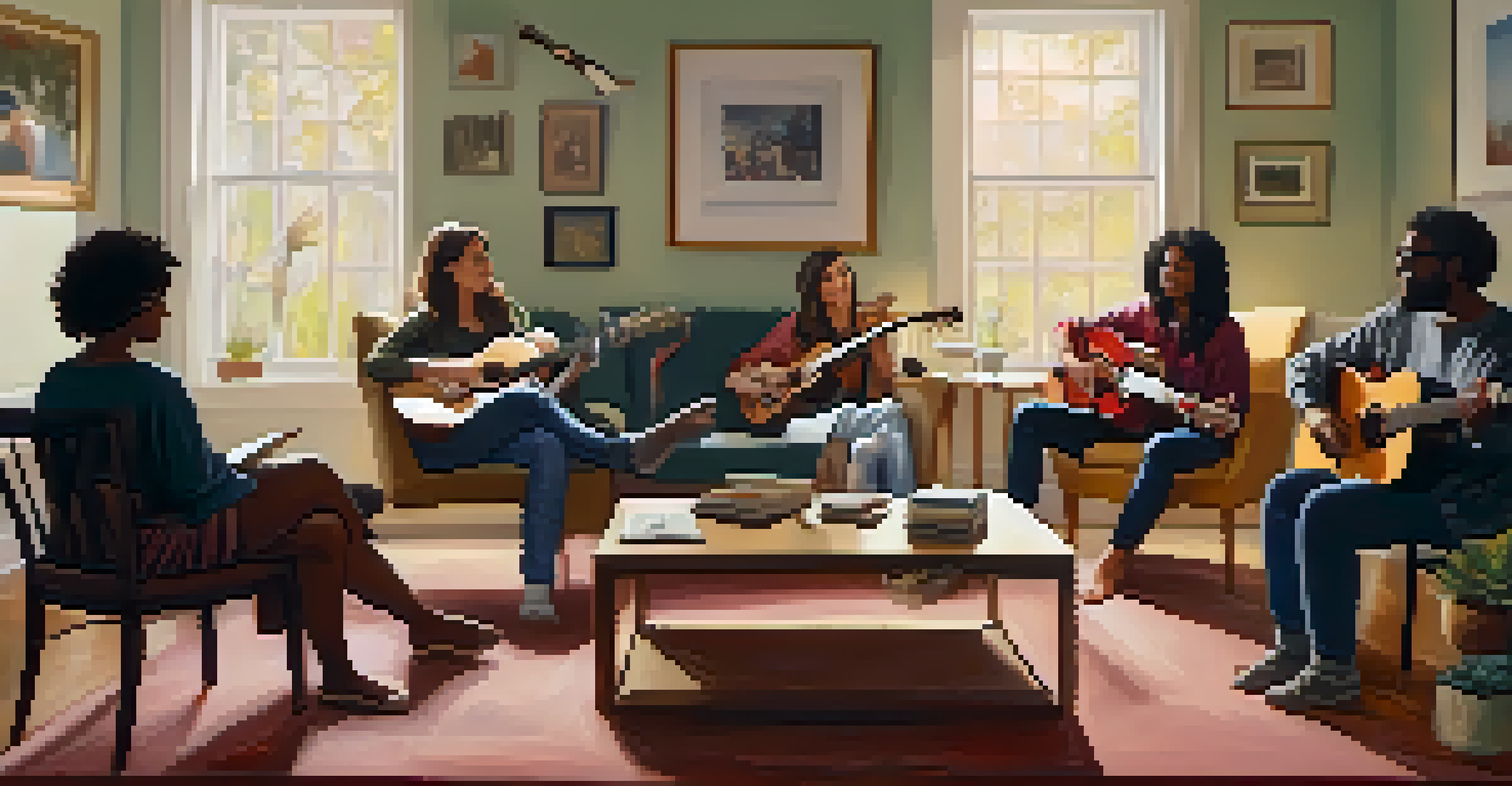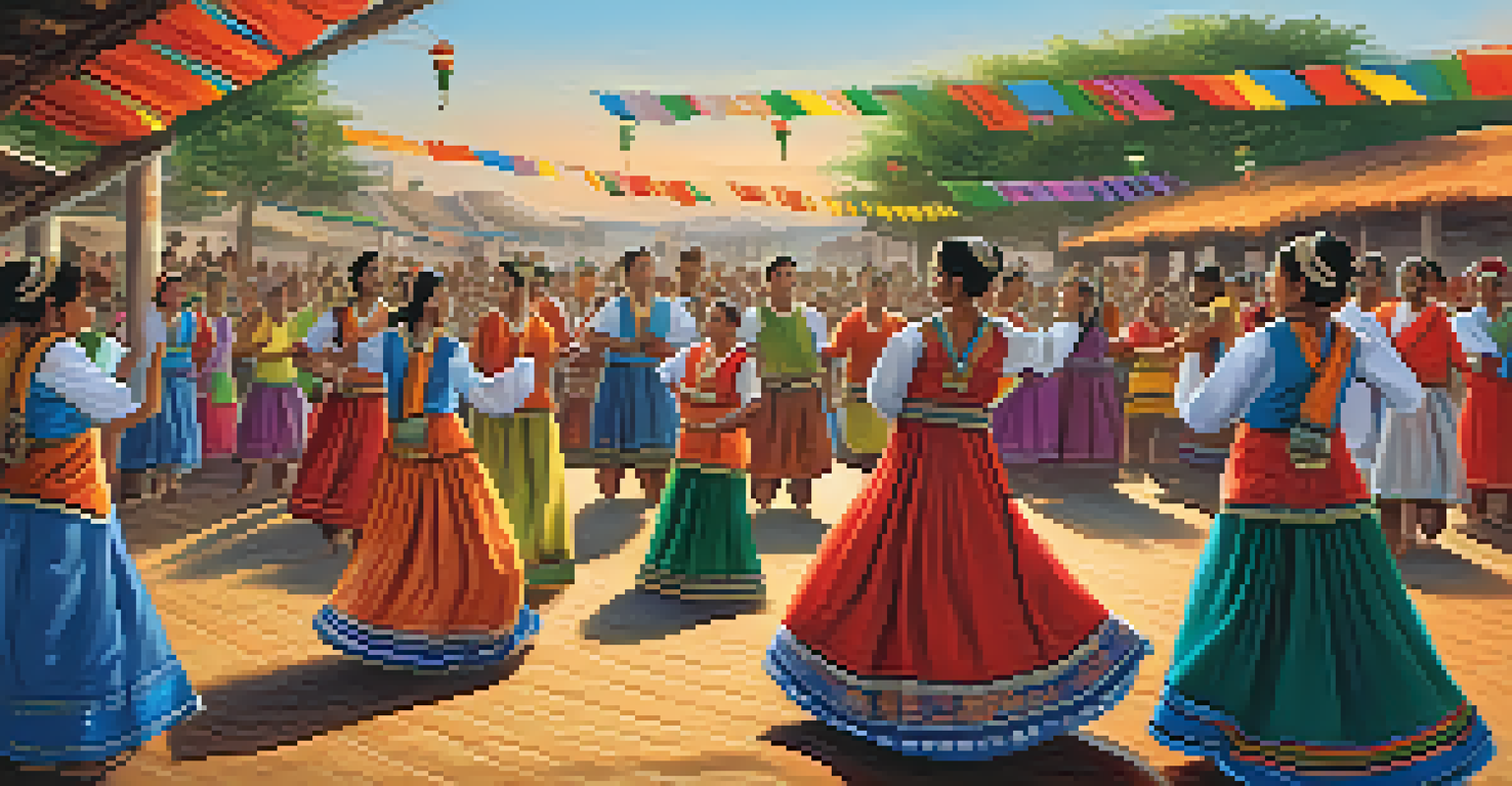Music as a Tool for Community Resilience in Crisis

The Power of Music in Challenging Times
Music has a unique ability to bring people together, especially during difficult moments. When crises strike, whether natural disasters or social upheaval, music serves as a comforting balm for the soul. It not only uplifts spirits but also creates a sense of unity among those affected, fostering a shared experience of resilience.
Music can change the world because it can change people.
Consider how communities often come together to sing or play music during challenging times. For instance, during the aftermath of a hurricane, local musicians might organize open-air concerts to raise funds and spirits alike. These gatherings become safe havens where individuals can express their emotions, find solace, and build connections with one another.
Ultimately, music acts as a powerful reminder that, even amidst chaos, there is beauty and hope. By harnessing this art form, communities can reinforce their bonds and navigate crises with a renewed sense of purpose and strength.
Creating Safe Spaces Through Music
Music can transform spaces into sanctuaries, especially when communities are under stress. In times of crisis, whether it be due to economic downturns or health emergencies, safe spaces become critical for emotional healing. Music events can provide these spaces, allowing individuals to gather and share their experiences in a supportive environment.

For example, community centers might host weekly jam sessions or open mic nights, encouraging participation from all ages. These events not only foster creativity but also create a sense of belonging, where people feel comfortable expressing their fears and hopes through song. The communal experience of creating or enjoying music together can be incredibly healing.
Music Unites Communities in Crisis
During challenging times, music fosters a sense of unity and resilience among individuals, helping them navigate their shared experiences.
Such safe spaces remind us that we are not alone in our struggles. By coming together through music, we can share our burdens and find strength in our collective resilience, reinforcing the idea that community support is invaluable during challenging times.
Music as a Form of Expression During Crises
In times of crisis, people often feel a wide range of emotions, including fear, anger, and sadness. Music provides an essential outlet for these feelings, allowing individuals to express what words sometimes cannot. Whether through songwriting, performing, or simply listening, music can articulate the inexpressible, helping individuals process their experiences.
Where words fail, music speaks.
Take, for instance, the genre of protest music, which has historically played a role in social movements. Artists like Bob Dylan and Nina Simone used their music to voice the struggles of their communities, inspiring change and resilience. In modern contexts, local artists often write songs that reflect their current challenges, becoming the voice of their community.
By channeling emotions into music, individuals can reclaim their narratives and foster resilience. This act of expression not only aids personal healing but also resonates with others, creating a shared understanding and reinforcing community ties.
Building Community Identity Through Music
Music plays a vital role in shaping community identity, especially in times of crisis. When faced with adversity, communities often turn to their musical roots to remind themselves of their heritage and strength. Traditional songs and local music styles can serve as powerful symbols of resilience and pride.
For instance, after a natural disaster, communities might organize festivals celebrating their local music, showcasing their culture and resilience. These events not only honor their past but also strengthen the community's identity moving forward. They remind members of their shared values and foster a sense of belonging that is crucial during recovery.
Safe Spaces for Emotional Healing
Music events create supportive environments where community members can express their feelings and find solace together.
In this way, music becomes a living testament to a community's journey, preserving memories and fortifying identity. By embracing their musical heritage, communities can inspire hope and determination in the face of adversity.
Collaborative Music Projects for Healing
Collaborative music projects have emerged as effective tools for community healing during crises. By coming together to create music, individuals can forge deeper connections and foster a sense of shared purpose. These initiatives often involve various community members, including musicians, artists, and everyday people, working together to produce meaningful musical works.
For example, community choirs or bands can be formed with the goal of performing songs that reflect the community's experiences. These groups not only provide an outlet for creative expression but also cultivate a sense of teamwork and camaraderie. The act of creating something beautiful together can be incredibly empowering, reinforcing community bonds.
Through collaborative music projects, individuals can find a renewed sense of hope and motivation. The music produced serves as a collective narrative, one that highlights resilience and unity, reminding everyone involved that they are stronger together.
Music Therapy: A Professional Approach to Healing
Music therapy has gained recognition as a valuable tool in promoting mental health and resilience, especially in times of crisis. Certified music therapists utilize music as a therapeutic medium to help individuals process their emotions and cope with stress. This professional approach highlights the profound impact that music can have on our psychological well-being.
In practice, music therapy might involve guided songwriting sessions, rhythmic activities, or even improvisational music-making. These interventions allow individuals to explore their feelings in a safe environment while developing coping strategies. Through music, clients can express themselves, connect with others, and ultimately foster resilience in their lives.
Music as a Tool for Expression
Through songwriting and performance, individuals can articulate their emotions during crises, strengthening community bonds and personal healing.
The effectiveness of music therapy underscores the importance of integrating creative approaches into mental health support, especially during crises. It serves as a reminder that healing can take many forms and that music has a vital role in our collective journey toward resilience.
The Future of Music in Community Resilience
As we navigate the complexities of modern life, the role of music in community resilience will only continue to evolve. With digital platforms and social media, communities can share their musical expressions more widely than ever before. This opens up new avenues for collaboration, connection, and healing, transcending geographical boundaries.
Moreover, the integration of technology in music creation allows for innovative approaches to community engagement. Virtual concerts and online music workshops can bring together individuals from diverse backgrounds, fostering inclusivity and shared experiences. These developments emphasize the adaptability of music as a tool for resilience in our increasingly connected world.

Looking ahead, it's clear that music will remain a powerful force for community healing and strength. By embracing its potential, communities can continue to harness the transformative power of music to navigate crises, celebrate their identities, and build a brighter future together.